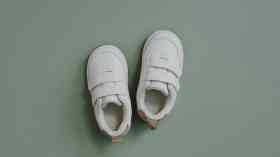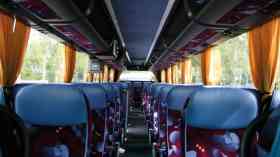Creating good citizens of the future
 The Duke of Edinburgh’s Award is a Charity that has been working with young people from all backgrounds for more than half a century. The dynamic programme of activities, including outdoor learning, develops young people’s self-esteem whilst building confidence, social interaction and teamworking. The DofE’s Guiding Principles are in line with schools’ and academies’ missions and PSHE programmes.
The Duke of Edinburgh’s Award is a Charity that has been working with young people from all backgrounds for more than half a century. The dynamic programme of activities, including outdoor learning, develops young people’s self-esteem whilst building confidence, social interaction and teamworking. The DofE’s Guiding Principles are in line with schools’ and academies’ missions and PSHE programmes.
The DofE is the nationally and internationally recognised award favoured by employers and universities alike. It was established in 1956 by HRH The Duke of Edinburgh and has been growing steadily ever since. This renowned programme builds young people’s interpersonal skills including confidence, leadership and commitment; attributes we all want to see in our young people in school, life and in the workplace.
Achievable by all
The Duke of Edinburgh’s Award is achievable by any young person who chooses to take up its challenge, regardless of ability, gender, background or location. A DofE programme is a personal challenge which can be tailored to suit personal circumstances and the non-competitive nature of a programme means that participants from different and diverse starting points can be equally proud of achieving a certificate based on their own journey.
DofE manager at Ealing Council, Linda Brown, has seen these benefits first hand for those with additional needs and NEETs: “Often we make sure the walk encompasses some climb with a viewpoint. It doesn’t need to be particularly high but the sense of achievement the young people feel when they reach the top is remarkable. They are able to appreciate the beauty of the scenery around them – for some it could be the first time they’ve ever been out in the countryside.”
The DofE works with and through the most comprehensive network of youth and community organisations in the UK. Today over 280,000 young people take part in DofE programmes each year in groups which are run in 10,874 DofE centres. Centres range from youth clubs, voluntary organisations and businesses to young offender institutions, schools, universities and academies.
St. John Plessington Catholic College is a comprehensive school on the Wirral. Until last September around 20 students were doing their DofE, however, this has now all changed. Today every Year 9 student is automatically enrolled.
“We made it part of the curriculum,” says Corinne Pearson, a science teacher and DofE Leader at the school. “All 240 of the students have all the provisions they need for Bronze. If they can’t afford hiking boots, we will provide them and if transport is a problem, we sort something out. The parent’s response was overwhelmingly positive. There’s such a willingness, such initiative, which wasn’t expected. The school took a small step in setting the programme up and the students have taken a massive leap in return.”
The biggest surprise was that the pupils Corinne wouldn’t have labelled ‘enthusiasts’ were the ones who took the lead. “They are the ones who showed up on time with all their kit, asking fantastic questions. There was one boy in particular who really struggled on the expedition, but his group pulled together and they all got through. He’s now joined the cadets and is showing real commitment.
These skills – leadership, initiative, planning – are so transferable. I was desperate for this non-academic, skills-based teaching at my last school. It’s the perfect parallel curriculum.”
Developing employability skills
It’s a difficult time for young people in the UK at the moment. The current economy means many are held back by a lack of jobs or affordable university places as well as a lack of confidence or experience. Employers and the CBI constantly report that young people do not have work ready skills. At the most critical stage of life’s journey, young people need some help to develop their employability skills. The DofE works with young people in every background to provide a solution. It is recognised by employers and universities alike as a mark of excellence.
Independent research shows that employers value the DofE on a young person’s CV and often actively look for it when recruiting. Completing a DofE Award can significantly improve a young person’s employment prospects and many identify this as one of the main benefits of doing a DofE programme.
For decades businesses have recognised the value of a Duke of Edinburgh’s Award in young job applicants, and now for thousands of apprentices and young employees the opportunity to do their DofE doesn’t stop at school. The Charity has developed rewarding partnerships with leading businesses allowing their employees, trainees and apprentices to benefit from an award-winning, life-changing DofE programme. The DofE works with leading organisations including Amey, Tesco, British Gas, John Lewis (Peter Jones), VINCI Constructions UK, ScotRail and Lloyds Banking Group with astounding success.
Amey currently offers Gold DofE programmes to all its younger staff, chief executive Mel Ewell says: “We believe the DofE is incredibly important, offering young people the opportunity to experience fresh challenges and achieve new skills, whilst contributing to their local community. We are very proud to be a Gold Partner of the DofE and look forward to continuing our partnership in future.”
The DofE is available at three levels: Bronze, Silver and Gold for young people aged 14-25 years. Participants undertake activities for a set period of time in each of the four sections – Volunteering, Physical, Skills and Expedition – with a fifth section, Residential, for those going for Gold. The DofE counts towards ‘out of hours’ learning.
The Expedition section
The Expedition section can be one of the most challenging, but also the most rewarding, sections of a young person’s programme as participants are required to plan, train for and complete an adventurous journey in the UK or abroad. It helps to develop initiative and leadership, and challenges young people beyond their expectations.
Aside from these personal gains, the participants also increase their appreciation of and respect for, the outdoor environment. They are encouraged by their leaders to think about the sustainability of their natural surroundings. It offers young people a rare opportunity to really separate and isolate themselves from their daily lives and modern mass media, learning to be completely self-sufficient.
Volunteering in the community
For many these new experiences come in the form of the Volunteering section, an area that not many will have been involved in previously. Participants are able to learn about and engage with their communities and feel a sense of belonging and purpose. These opportunities also help to develop social interaction and confidence, increasing their employability and work experience.
Every year participants give their free time to society, with an estimated value of around £23 million. This commitment doesn’t stop once the young people have completed their programmes; research shows that 82 per cent of young people said that their DofE has made them want to continue with volunteering activities in the future.
DofE participant Seb set up an IT course with his two friends for their community as part of their Volunteering section: “We had to design and prepare a complete computer course from scratch. This proved to be challenging but rewarding, and people have really enjoyed what we have done, and it has been great to see that benefit and satisfaction directly. It has been nice for us to give something back to the community. It’s what all volunteering should be about.”
Improved fitness and new talents
Huge benefits are also gained from the other three sections of the programme. The Physical element allows young people to improve their fitness by undertaking an activity on a regular basis, whilst the Skills section helps participants to develop a new talent.
The Residential section is a fundamental part of Gold DofE programmes. It may well be the first time a young person has spent time away from home without their family or friends. This experience develops self-sufficiency and the confidence to thrive in an unfamiliar environment. It also helps participants to develop team-working skills and become more tolerant of others.
Benefits for schools
DofE programmes play a vital part in meeting the vocational elements of curricula across the UK. Many academies and schools have already recognised the benefits of the DofE and are running popular and growing programmes. The DofE’s guiding principles are in line with schools’ and academies’ missions and PSHE programmes and the DofE actively supports these establishments to set up and run the DofE ensuring as many young people as possible have access to it.
Linda Halbert, Principle at Freebrough Academy, Cleveland, says: “The Duke of Edinburgh’s Award is a key part of our strategy as a new Academy to develop a ‘can do’ culture. The opportunities offered to our students are an essential part of the curriculum. Students bring the skills and qualities they learn as part of their programme back into school and apply them in lessons and in improving the school community.”
Students feel the benefit of achieving their DofE Award for the rest of their lives. It provides a prestigious certificate recognising their achievement and an improved chance of getting into university, college or a job. It gives them the opportunity to create their own individual learning programme and a chance to explore new and unfamiliar environments.
The DofE helps to create a positive ethos and supportive relationships in educational establishments. It strengthens the school community by encouraging pupils, teachers and parents to work together in different settings. Young people are able to contribute to the life and work of the school, exercise responsibility as members of communities and offer support to others through the Volunteering section and DofE leadership.
Through the DofE, teachers are able to form far better relationships with their students outside of school which transfer directly into class; the more that young people can relate to their teachers outside of the classroom, the more comfortable the learning environment can be inside the classroom. Young people also become better at dealing with all adults as a result of working with teachers outside the classroom, and this will come across in job and FE/ HE interviews.
Community benefits
The school’s DofE groups can forge extremely valuable relationships within the local community. Participants will carry out activities for their DofE programmes in local charity shops, charitable organisations, outdoor centres, care homes and all kinds of other places.
The DofE is a programme that runs seamlessly alongside an establishment’s academic curriculum and will encourage new students.
To deliver the DofE an organisation must hold a licence from the DofE Charity or work with an organisation that does so. The organisation will become either a Directly Licenced Centre (DLC), ie. directly licenced through the local DofE regional or country office, or works through the local authority’s youth service. Running a structured DofE programme alongside an establishment’s academic curriculum counts towards out of hours learning – and it helps create the good citizens of the future.
The DofE is keen to increase the number of educational establishments they work with to give more young people the chance to do their DofE and lead successful and fulfilling lives. The charity offers an abundance of support to make running DofE programmes easier. Their regional teams ensure that all local authorities, schools, academies and colleges understand the benefits that offering DofE programmes brings to their young residents and students – and work to make certain that they have all the support they need to implement and expand the DofE groups in their area and schools.
The DofE has provided a structure to encourage, facilitate and recognise young people’s achievements for over 50 years and has proven itself to be resilient to political change, financial constraints and fashion. It has built a reputation as a badge of high achievement by a young person. It is that recognition that gives the DofE real currency and credibility for the young person. It is trusted and valued by employers, higher education establishments and parents alike.
For more information
www.DofE.org
Latest News
30/10/2025 - 01:28
In the wake of the Raac crisis, the DfE spent £5 million on research into the condition of school buildings, which is due to conclude in spring 2026.
30/10/2025 - 01:09
Malmesbury Primary School in Wiltshire has submitted plans for a major expansion, funded by entrepreneur James Dyson.
30/10/2025 - 00:55
Monday's Every Pair Tells a Story campaign to protest to highlight the national crisis in SEND provision.
29/10/2025 - 09:19
Estimated data from the Department for Education reveals that 470,000 pupils under 16s use local authority funded transport to get to school.
28/10/2025 - 09:29
Timeline set for removal of Reinforced Autoclaved Aerated Concrete







